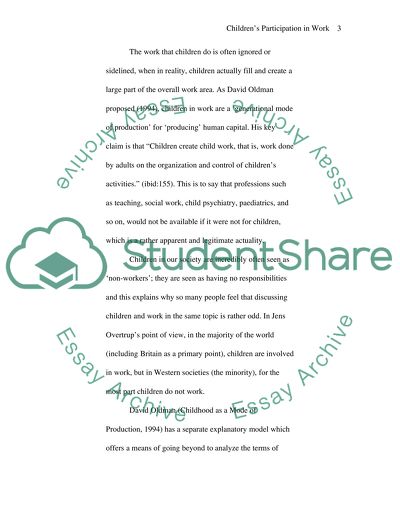Cite this document
(“Childrens Participation in Work Essay Example | Topics and Well Written Essays - 2250 words”, n.d.)
Retrieved from https://studentshare.org/sociology/1505598-childrens-participation-in-work
Retrieved from https://studentshare.org/sociology/1505598-childrens-participation-in-work
(Childrens Participation in Work Essay Example | Topics and Well Written Essays - 2250 Words)
https://studentshare.org/sociology/1505598-childrens-participation-in-work.
https://studentshare.org/sociology/1505598-childrens-participation-in-work.
“Childrens Participation in Work Essay Example | Topics and Well Written Essays - 2250 Words”, n.d. https://studentshare.org/sociology/1505598-childrens-participation-in-work.


